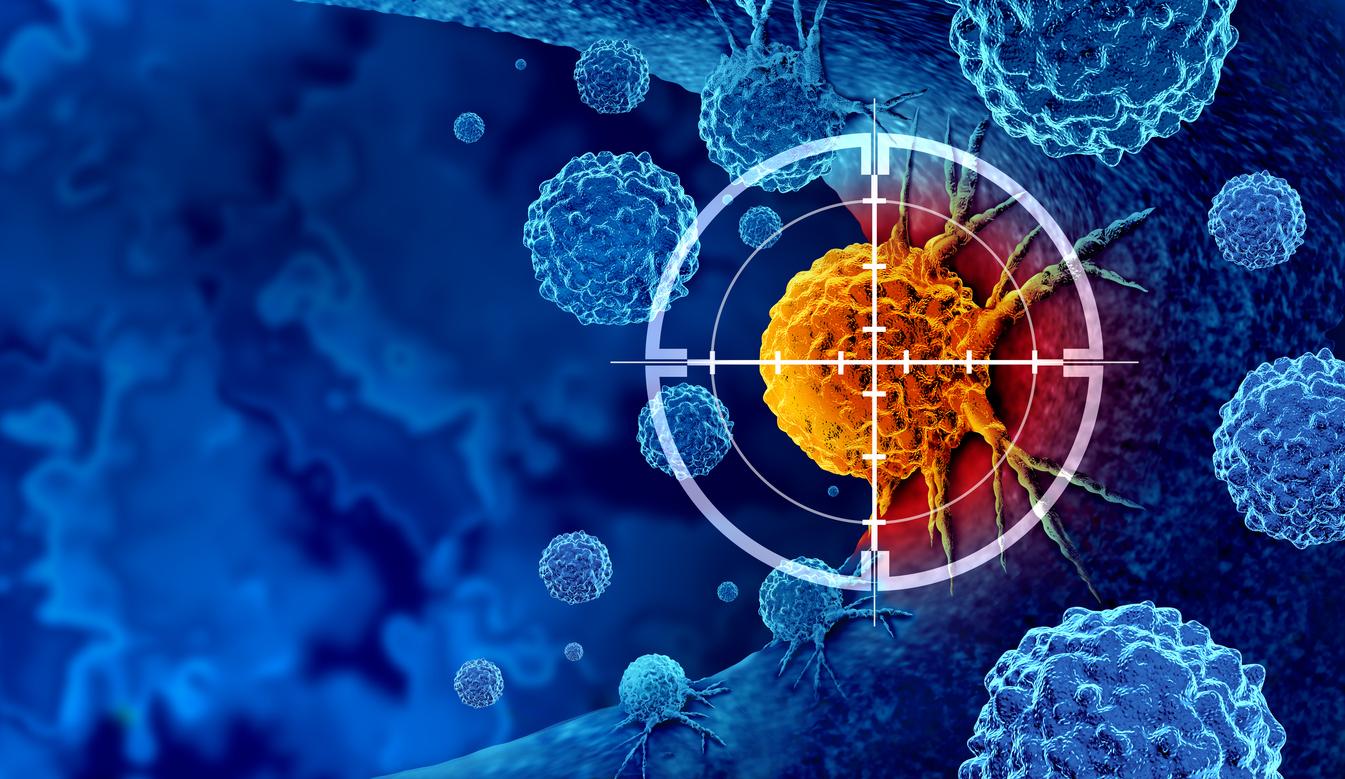This new discovery triggered the applause of a room full of oncologists, researchers and industrialists, gathered in Paris for the annual congress of the European Society of Medical Oncology. Presented on September 11, 2022, thestudy showed that the combination of two immunotherapy treatments could produce a response rate “unprecedented” and so shrink the tumor by 95%according to Myriam Chalabi, lead author of the study and researcher at the Netherlands Cancer Institute in Amsterdam.
The current treatment offered to patients with Colon Cancer is surgery, which may or may not be followed by chemotherapy. In this study, patients were treated with a series of immunotherapy and then operated on one to two weeks later. Although it was conducted on a small number of patients, 112 in total, the results are more striking: after examination, 95% of the tumors regressed by 90% and 99% of the tumors regressed by more than 50%. Currently, conventional chemotherapy offers a less interesting therapeutic response: only 5 to 7% of tumors regress by more than 50%.
However, this progress concerns only 10 to 15% of non-metastatic colon cancerscancers with a genome abnormality leading to a failure of the DNA repair system (dMMR). A third of these abnormalities are linked to a hereditary disease, Lynch syndrome, increasing the risk of cancers of the colon, uterus and ovaries.
43,000 new cases of colorectal cancer per year in France
“This treatment could concern several hundred patients per year, even counting only localized cancers linked to a failure of the DNA repair system. Colorectal cancer is indeed very common, with 43,000 new cases per year in France. “said Pauline Vaflard, a medical oncologist at the Institut Curie in Paris who did not participate in the study at World.
A total of 112 patients with a median age of 60 participated in the study. 74% of them had high-risk stage III radiological disease, i.e. the tumor had passed through the wall of the colon or rectum to nearby organs and reached the lymph nodes near the colon . They received a combination of ipilimumab and nivolumab (two immunotherapy treatments), then nivolumab for the following two weeks, before being operated on.
For tumors of this type, “recurrence rates are between 20% and 40%, even when standard chemotherapy is administered”, notes Myriam Chalabi, lead author of the study. On this treatment, at a median follow-up of 13.1 months, there was no no disease recurrence.
#ESMO22 Highlights: Neoadjuvant immune checkpoint inhibition in locally advanced MMR-deficient #coloncancer: the NICHE-2 study @MyriamChalabihttps://t.co/fz98eVjvqk
— ESMO-Eur. Oncology (@myESMO) September 11, 2022
Nevertheless, grade 3-4 adverse effects were observed in four patients, namely hepatitis, rash, muscle weakness and muscle damage after taking the treatment. In these patients, surgery was delayed by two weeks or more.
After the operation, samples of 67% of patients no longer contained a tumor. For 95% of them, only 10% of the initial tumor was still present. “Immunotherapy before surgery could become the standard treatment for patients with dMMR-type colon cancer.”, concluded Myriam Chalabi. A treatment that could, in the longer term, avoid mutilating surgeries in patients with colon cancer.
Source :
- Highlights on neoadjuvant ICI in locally advanced dMMR colon cancer: the NICHE-2 study, ESMOSeptember 11, 2022


















